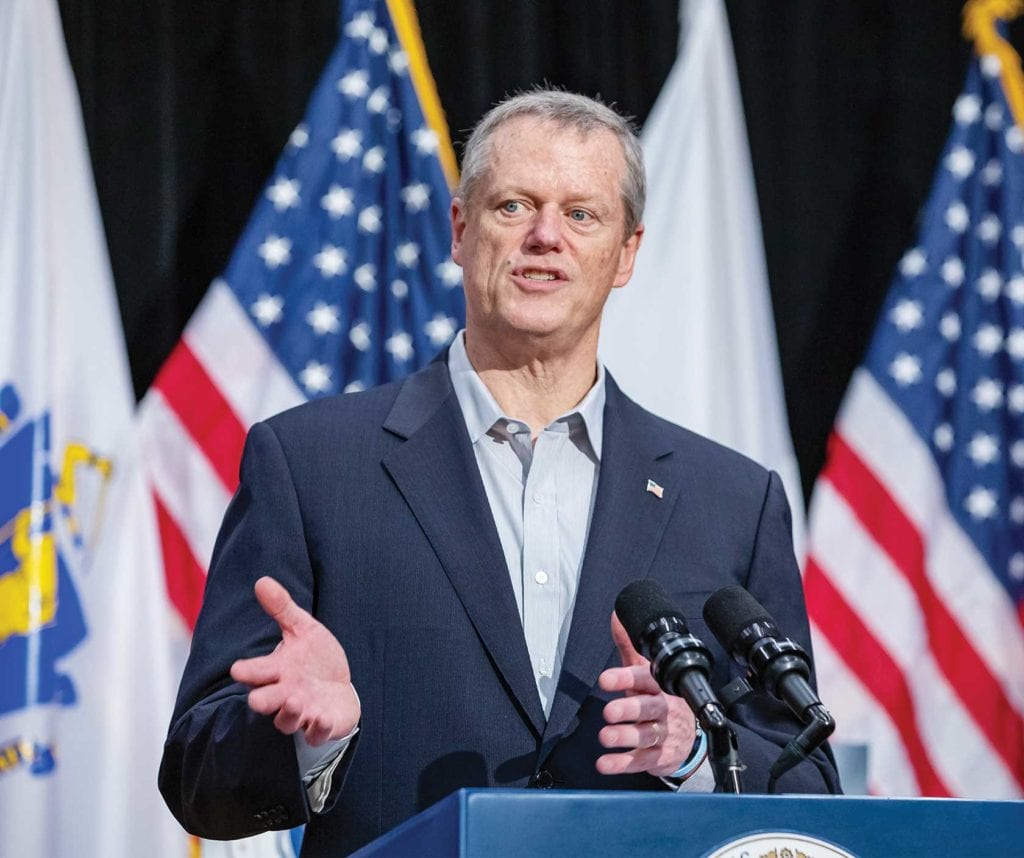Restaurants, retail now open in Massachusetts
Governor cites downward trend in COVID cases; some urge caution

Massachusetts’ second phase of reopening began on Monday. Retail stores, day care facilities, camps and outdoor-dining areas have already begun welcoming back customers, and business owners are adapting to a post-peak pandemic.
Gov. Charlie Baker has moved forward with the second phase of reopening based on the downward trend of new cases and hospitalizations in the state. Although many business owners are anxious to reopen, others warn against reopening too soon.
State Rep. Mike Conolly has previously said that not enough has been done to protect at-risk communities. He has said that officials in the commonwealth are rejecting science and rejecting experts in an effort to serve capitalism, and that the economy began reopening once the privileged and wealthy were ensured a hospital bed.
Carlene Pavlos, the executive director of the Massachusetts Public Health Association, reported to the Boston Globe that Baker ignored certain standards while reopening, for example, not collecting enough data on at-risk populations.
The second phase of reopening is dubbed “cautious.” All businesses must meet state criteria for reopening and ensure proper sanitization methods. Only outdoor seating at restaurants is permitted, and stores must limit their number of customers. Summer camps, hotels and other recreational areas that reopen must follow a long list of requirements. Gatherings of 10 or more, unless in a park, are still prohibited.
Only eight people per 1,000 feet of indoor space are allowed in a store at a time. This includes the staff. Fitting rooms will remain closed, and people will not be allowed to sample products. Shoppers must still remain six feet apart at all times and wear face coverings.
Although restaurant-goers at tables will not be wearing face masks, all employees must do so. All utensils will be packaged or rolled, and there will be a six-foot distance between all tables. The tables will be sanitized after every meal. Restaurants will collect customer contact information and shut down for 24 hours to sanitize if a diner tests positive.
It’s been three months since Gov. Charlie Baker declared a statewide stay-at-home order. The state’s total case count, as of Monday, was 103,206 cases and 7,353 deaths. There have been 13,026 confirmed cases in Boston and 666 deaths.
The pandemic continues to hit communities of color the hardest
The state population is over 80% white, but only 29% of COVID-19 cases have been recorded as “non-Hispanic/white.” The data is incomplete, as race data is known for only about 63% of the state’s reported cases.
In Boston, black individuals make up only 25% of the city’s population, but 38% of its cases and 35% of its deaths. The opposite can be said for white individuals. Boston is about 45% white, but white individuals only make up 25% of the 11,066 cases where race data is known.
Many black-owned businesses are suffering. The Boston Black Hospitality Coalition considers the threat to Boston’s black businesses a “state of emergency.” The coalition has pledged to support these businesses and recently launched a relief fund to assist black-owned restaurants and bars.
The coalition’s website notes that some black-owned restaurants and bars have lost more than 90% of their revenue in the effort to abide by social distancing guidelines.
“To date, the black-owned restaurants and bars represented by this coalition have not received adequate financial support to survive the crisis,” reads the website, later adding “If nothing is done, the representatives of the coalition will be faced with a financial decision which would ultimately result in the closure of institutions who contributed to the combined 180+ years of service to Boston’s black community.”
The “second step” of Phase Two will take place next. Indoor dining in restaurants will open at that time, as well as close-contact personal services, such as nail salons.






